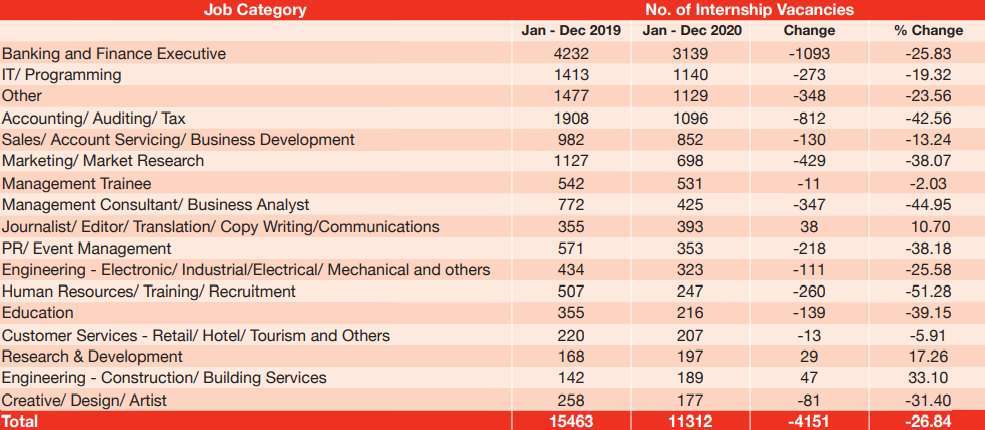//vol.13-1 Overview
Making the transition from study to work is rarely straightforward but at present it is fraught by the complexities of the pandemic. A year ago, very few people expected COVID-19 to have such long-lasting impact or to throw so many plans into disarray. Many young people’s job and career prospects have been abandoned. Job training and internships have been postponed, curtailed or altered hurriedly into a remote version done on a computer at home.
An era of unemployment
Even before the pandemic, young people were three times more likely to be unemployed than those aged over 25. According to the United Nations’ International Labour Organization, since the onset of COVID-19, one in six young people have stopped work and about half have reported a delay in their studies.1 With so many other graduates looking for stable entry level jobs, it can be hard for employers to choose between them. Standing out from the crowd has become increasingly important. While work experience has always counted, today an internship is a crucial bridge between school and career. It offers a way to learn hands on skills while considering different pathways but the most important outcome is quality job training and confidence to contribute and fit into the workplace.2
Where can training be found?
The effect of the pandemic has been to reduce the number of internship vacancies significantly. Figures prepared for Youth Hong Kong in February 2021 by JIJIS (Joint Institutions Job Information System), a platform for employers and university students that is offered jointly by University Grants Committee-funded universities in Hong Kong, show a steep drop in internship vacancies. Overall, internships dropped by about 30%. Despite all the hurdles, students who were able to do internships valued them in their conventional form as an important way to learn the ropes in their chosen fields, to network and build contacts. However, in a survey3 of students in fields such as law, accounting and speech therapy last year, the majority were not happy about remote job training. Over 60% said that not only did virtual internships decrease the chances for them to interact with their colleagues but that the online arrangements did not feel real enough, though the students also said working at home had its advantages, notably in terms of convenience.4

Figure 1 JIJIS internship vacancies 2019-2020 in employers of over 100 interns
How can they work?
Fortunately, the days when young interns just made the tea and operated the shredder have all but disappeared. Typically, internships today are spent doing work similar to that of an entry-level employee and can include being part of a team with other interns and employees as well as interacting with the organization’s clients. As the pandemic persists, undergraduates seeking internships through academic advisers and careers centres may find that government support schemes are acting as a liaison with employers, as in the training schemes described elsewhere in this issue. Where international internships are concerned, physical and virtual offerings may be limited in 2021 and virtual internships are more likely, as they are in mainland China.
Employers’ responses
As social distancing continues, some big employers, forced to shake up hiring practices and internship programmes, are considering their next steps. Last year, the amount of face-to-face interaction between student interns and their supervisors were massively reduced and the length of internships was cut. Others programmes were cancelled all together. What improvements can we look forward to? To make internships effective, immersive and engaging, a marked increase in remote interaction between mentors and peers will probably be the first noticeable change. The fastest-responding employers, including some of those featured in this issue, have already modified their schemes massively in order to offer useful work training. Learning about company culture is likely to take place with virtual “buddy” programmes, gaming and even sports. International banks brought lessons learned from having employees working from home into play.5 Feedback from interns was quite positive. They said working remotely allowed them to be more productive than usual because of fewer meetings and not needing to commute.6 On the other hand, they could meet senior staff from around the world, if only on Zoom. However, in the end, personal touch makes a big difference: how does one build a trusted relationship with a customer or engage a new team with charisma if one can only meet online?
What more can be done?
Young people’s employability is one of the Federation’s key concerns and we run programmes that highlight skills suitable for future jobs. They embrace both the digital and soft skills that employers value. However, honing such skills and then applying them to knowledge acquired through study are only the first steps on the way to a fulfilling career. Meeting people, making contacts, understanding the dynamics of the workplace: these all need to take place in real-time. Guaranteed, well-publicized opportunities to gain on-the job-training can bridge a gap. They make a big difference to a young person choosing between multiple possible directions. Partnership programmes between youth service organizations like HKFYG and employers can definitely work well. In the end, however, it takes a focused young intern sending a strong signal to potential employers to make a success of job training. Opportunities to do that are now more valuable than ever. They may only come once in a lifetime.
Read more
- un.org/development/desa/youth/news/2020/05/covid-19/
- ucas.com/careers/getting-job/do-you-need-internship-get-job-after-university
- yrc.hkfyg.org.hk/2020/11/30/yi055/
- scmp.com/news/hong-kong/society/article/3111940/hong-kong-university-students-internships-yet-another
- https://www.scmp.com/business/banking-finance/article/3084769/global-banks-hong-kong-shorten-annual-internship
- efinancialcareers.co.uk/news/2020/11/goldman-sachs-virtual-internships


